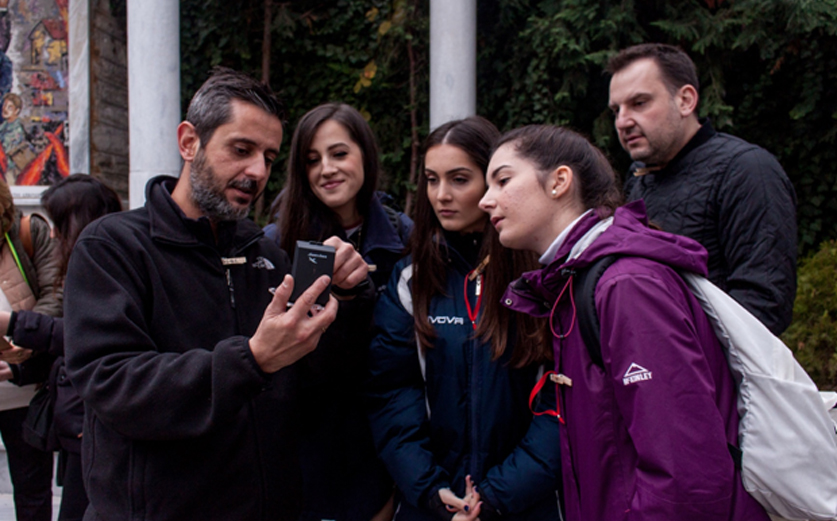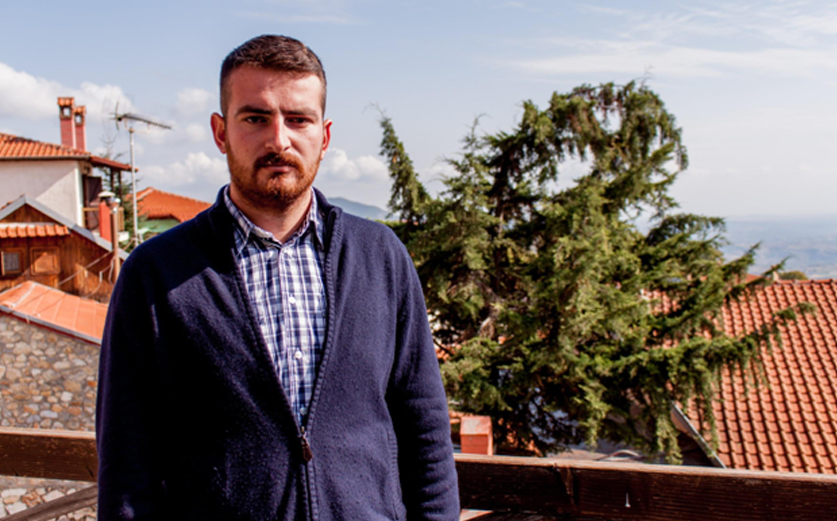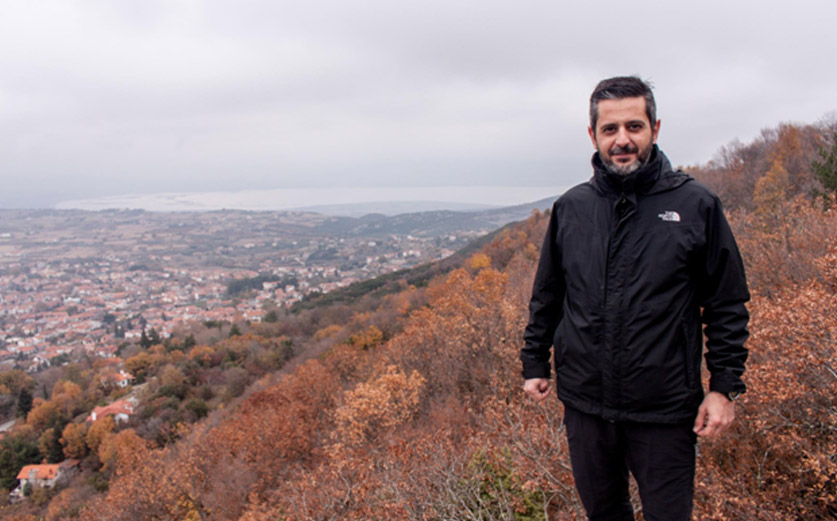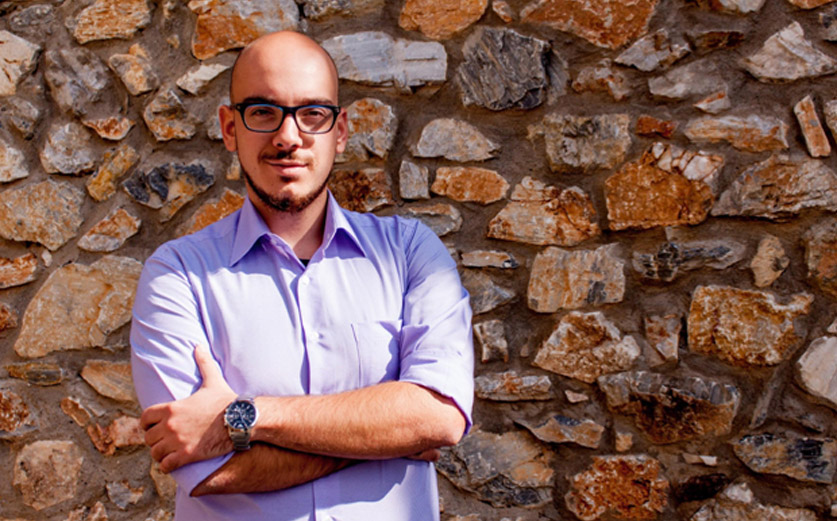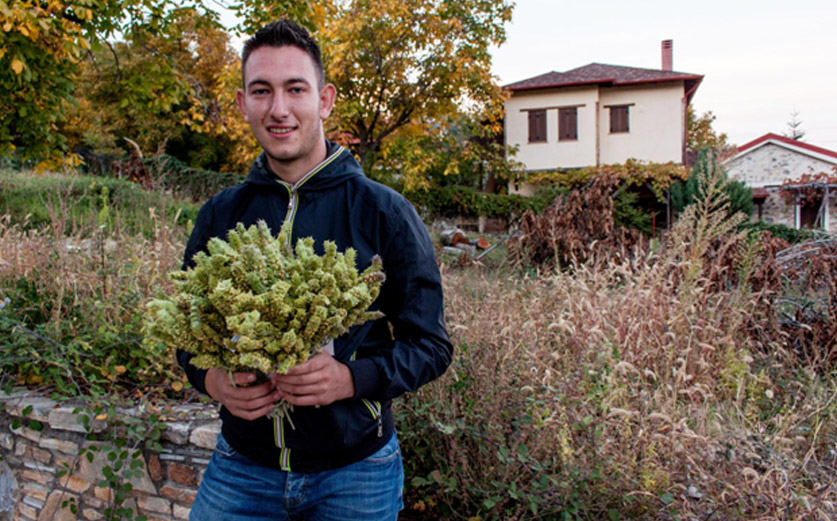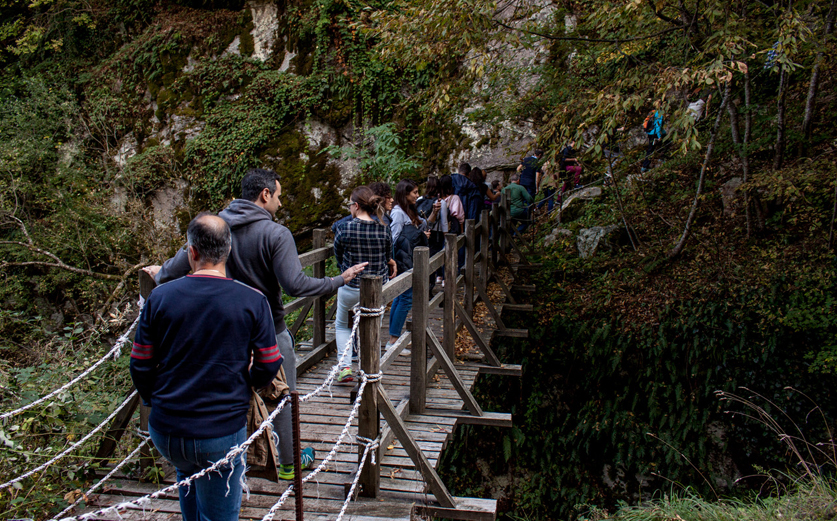Our Way Chortiatis
Chortiatis, Greece – Our Way, a company which provides alternative excursion services in different regions of Greece, held its second activity, “The Nature of Photography,” in December. Armed with DSLR cameras, 30 participants followed the fabled map of Barba Nikita on a treasure hunt through the village and up to the Theodoros Litsas Scouting Center, where they warmed themselves in front of a toasty fire, ate homemade pies and steaming tea, and received a photography lesson from Ioannis Vergadis of Crom Studio.
The company is the brainchild of Gerassimos Mazarakis, age 41, and Stavros Papadopoulos, age 31, two longtime members of the Scouts of Greece, who both participated in New Agriculture for a New Generation’s (NANG) Alternative Tourism program at the American Farm School last year.
“We wanted to start this project because this is how we love to spend our free time,” Gerassimos said. “Chortiatis is our second home, and we’ve been organizing trips in the area for many years. In essence, we’re turning our hobby into a profession.” The Alternative Tourism program taught them how to turn their idea into a reality: how to price the excursions, how to advertise them, how to ensure the safety of their participants, and much more. All of this in collaboration with three other associates: Apostolos Maloudis (also a graduate of the program), Andreas Andrikos, and Maria Liakopoulou. They named their company “Our Way” to highlight their unique approach to developing new friendships through alternative experiences.
“There are certain values from the Scouts that we’ve applied to this endeavor,” Stavros said. “We want to give people first-hand experiences; we believe in the power of friendship and good chemistry between people; and we try to act with courtesy and respect for nature and for our fellow human beings. Our activities are accessible and inclusive for everyone, and we are very attentive to their needs and safety: we’d rather go all together in a group of 30 than go in a small, exclusive group and be the first to reach the top.
December’s “The Nature of Photography” activity highlighted the differences between Our Way and a company you might hire to climb the mountain or to lead you on a photography tour of the area. For one thing, the hike up to the Scouting Center was only part of the overall experience. We met at the Holocaust Memorial in Chortiatis, where Mr. Babis, a long-time resident, shared some of the village’s history with us. Then we were divided into small groups and each given Barba Nikita’s treasure map with clues to follow along the way to the Scouting Center. The cameras recorded our journey, and a friendly spirit of competition added to our excitement.
We reached the Scouting Center just as it began to rain, and the crackling fire in the fireplace of the main building and the delicious aromas of hot tea, cheese and spinach pies, and various homemade cakes and cookies greeted us. Once we were warm and settled, Ioannis taught us the basics of photography, and each group presented its photos and participated in a hands-on demonstration of three-point lighting. At the end of the evening, we proceeded single-file down the mountain, our path lit only by lanterns and the nearly full moon.
Each part of the excursion activated a different sense of perception. The cameras primed our sense of sight, the food our senses of smell and taste, and the descent our senses of hearing and touch. “I loved the food,” said Christina Amanatidou, one of the participants. “And I, the fire,” said her son Konstantinos. “I loved descending from the Scouting Center all together in the dark and seeing the lights from the village spread out below us,” said “Stella Yiapoutzidou. “It was fantastic adventure.”
“Nature is such a source of inspiration, and the activities we do are even better when we do them with friends,” said Apostolos, one of the organizers. The Greek idea of parea, a long-lasting circle of friends who gather together to share life experiences, values, and ideas, plays a significant role in Stavros and Gerassimos’s vision for Our Way. They hope that the people who participate in their excursions will want to come again and slowly develop bonds with each other. And that’s exactly how I felt. Our Way’s parea was friendly and welcoming, and the easy, joking rapport between them made the outing seem like an afternoon with old friends.
